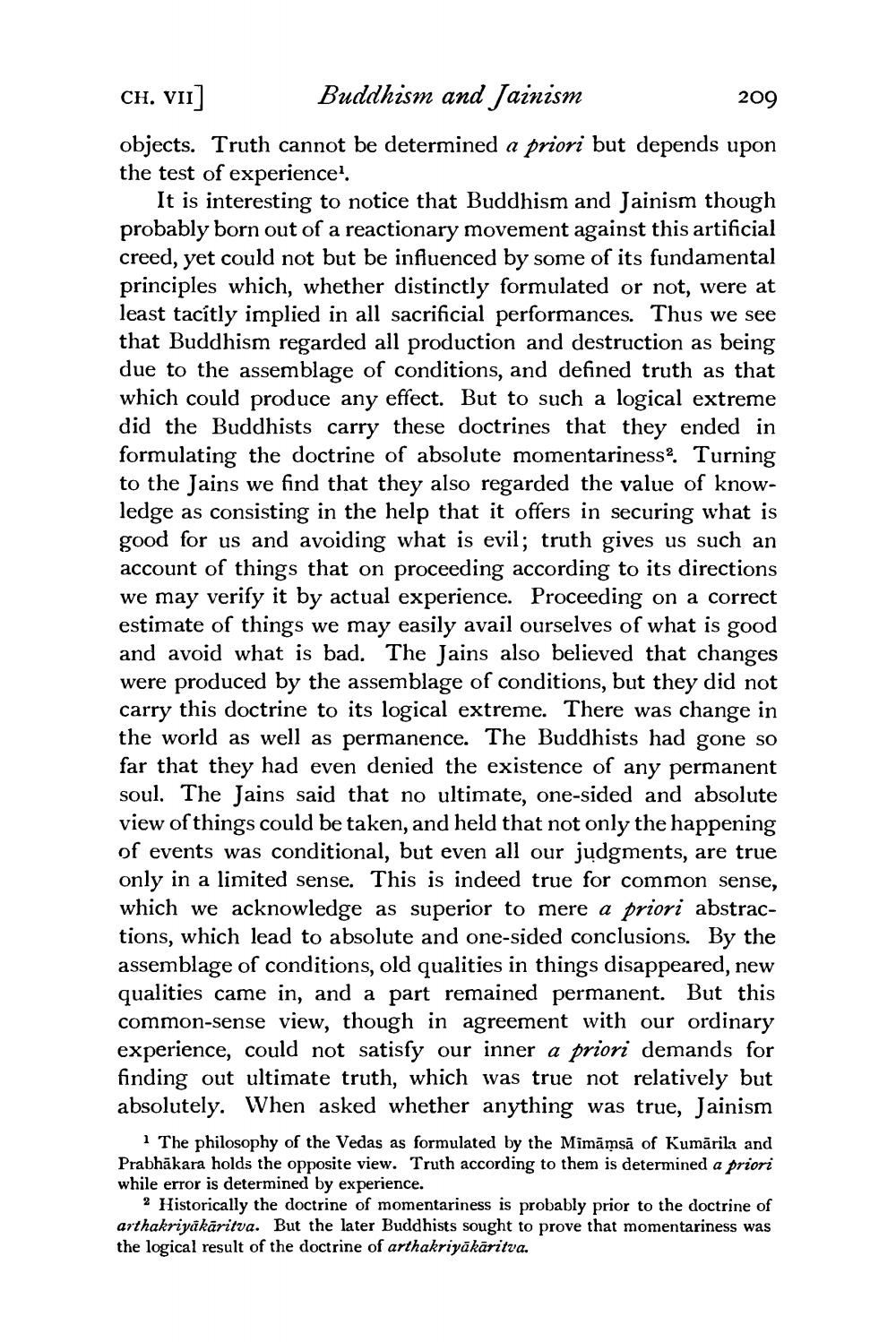________________
CH. VII]
Buddhism and Jainism
209
objects. Truth cannot be determined a priori but depends upon the test of experience1.
It is interesting to notice that Buddhism and Jainism though probably born out of a reactionary movement against this artificial creed, yet could not but be influenced by some of its fundamental principles which, whether distinctly formulated or not, were at least tacitly implied in all sacrificial performances. Thus we see that Buddhism regarded all production and destruction as being due to the assemblage of conditions, and defined truth as that which could produce any effect. But to such a logical extreme did the Buddhists carry these doctrines that they ended in formulating the doctrine of absolute momentariness2. Turning to the Jains we find that they also regarded the value of knowledge as consisting in the help that it offers in securing what is good for us and avoiding what is evil; truth gives us such an account of things that on proceeding according to its directions we may verify it by actual experience. Proceeding on a correct estimate of things we may easily avail ourselves of what is good and avoid what is bad. The Jains also believed that changes were produced by the assemblage of conditions, but they did not carry this doctrine to its logical extreme. There was change in the world as well as permanence. The Buddhists had gone so far that they had even denied the existence of any permanent soul. The Jains said that no ultimate, one-sided and absolute view of things could be taken, and held that not only the happening of events was conditional, but even all our judgments, are true only in a limited sense. This is indeed true for common sense, which we acknowledge as superior to mere a priori abstractions, which lead to absolute and one-sided conclusions. By the assemblage of conditions, old qualities in things disappeared, new qualities came in, and a part remained permanent. But this common-sense view, though in agreement with our ordinary experience, could not satisfy our inner a priori demands for finding out ultimate truth, which was true not relatively but absolutely. When asked whether anything was true, Jainism
1 The philosophy of the Vedas as formulated by the Mimamsă of Kumārila and Prabhakara holds the opposite view. Truth according to them is determined a priori while error is determined by experience.
2 Historically the doctrine of momentariness is probably prior to the doctrine of arthakriyākāritva. But the later Buddhists sought to prove that momentariness was the logical result of the doctrine of arthakriyākāritva.




